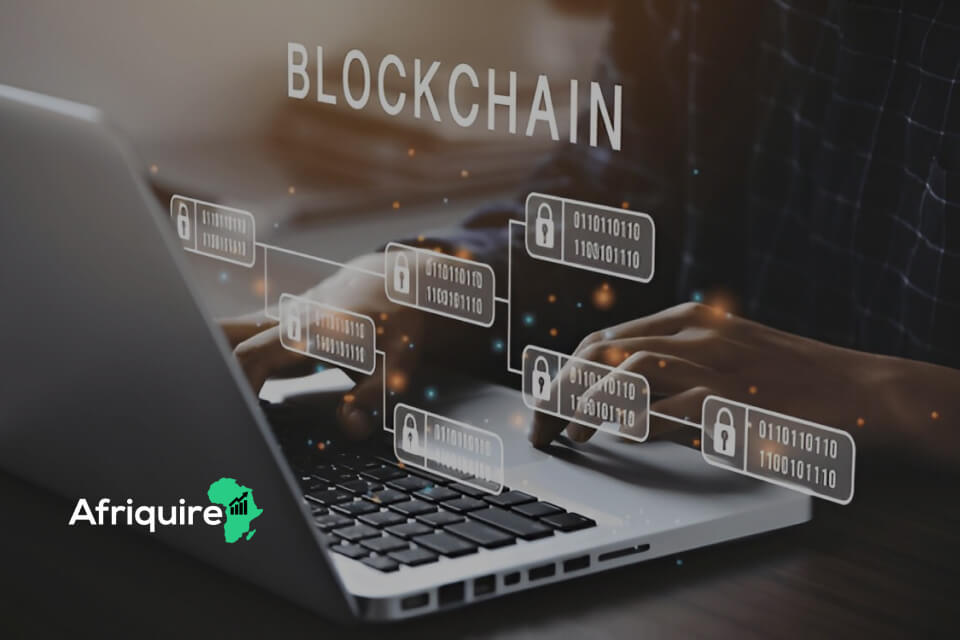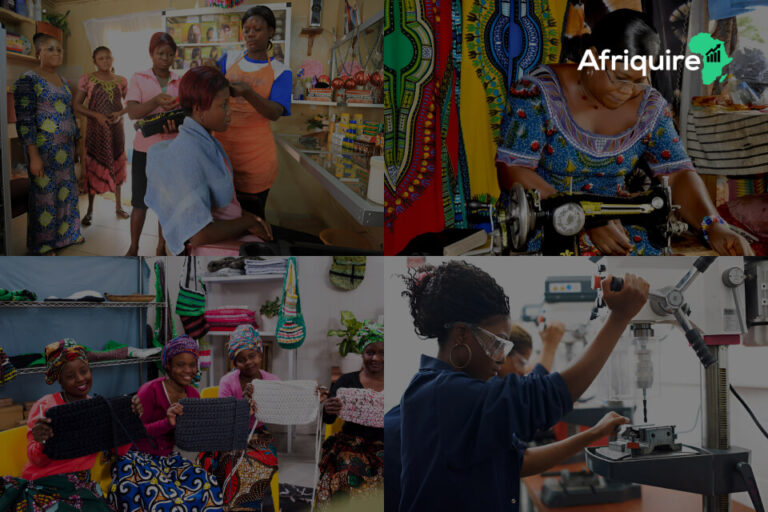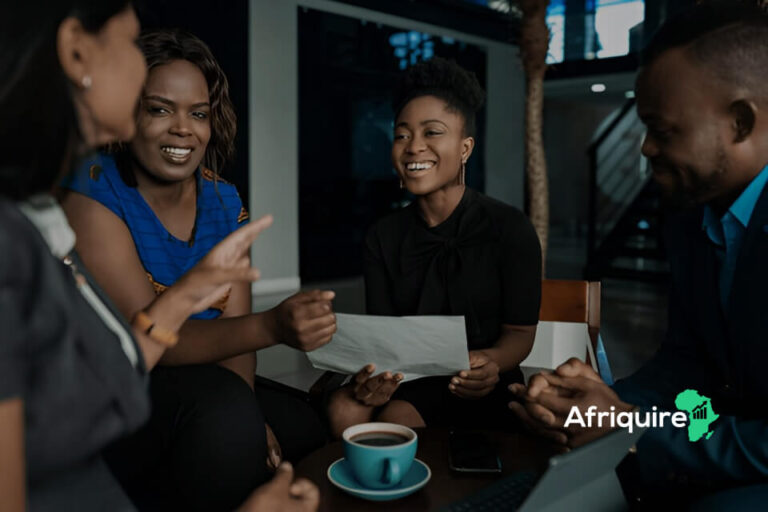Introduction
Have you ever considered how the technology that started with cryptocurrency works? Or do you wonder if the impact of blockchain on African economies will be significant? Well, the answer just might shock you! Blockchain, the same technology behind Bitcoin, is disrupting Africa’s economy. Far beyond digital money, it has improved banking systems, helped to track supply chains and fight corruption. Bitcoin is gradually becoming a game-changer.
Imagine a world where it is easy to send money, where middle men are not needed to get fair payment, when every transaction is secure and transparent. That is the power of blockchain. African countries are starting to be open to this technology to solve economic problems. Are you interested in knowing how it works? Read on to see how blockchain is transforming African economies innovation by innovation.
Introduction: Impact of Blockchain on African Economies
Introduction to Blockchain in Africa
Blockchain is like a digital notebook that records transactions in a very secure and clear way. Imagine a book where every transaction is written, and everyone in a group has a copy. If one person tries to cheat and change something, everyone else will know because their copies won’t match. That’s how blockchain works.
In Africa, blockchain is being used to solve problems in areas such as banking, farming, and even land ownership. Many African countries are starting to see how this technology can make businesses faster, reduce corruption, and bring more trust into systems.
Current State of Blockchain Adoption in Africa
While blockchain is still very new in Africa, not all countries are in the dark about this technology. Some are making quite some great strides forward. Countries such as South Africa, Nigeria, and Kenya are making headlines.
In Nigeria, many people use cryptocurrencies, which are money made possible by blockchain technology. People are buliding careers around cryptocurrency. Nigerian companies are also using blockchain to provide financial services like sending money or getting loans.
In Africa, it has been used in the recordation of lands. It has helped to solve land disputes. Blockchain technology makes the land records clear and secure; thus, nobody can fraudulently acquire somebody’s land.
Despite these successes, most African regions are not exactly open to blockchain. Challenges like poor internet and a lack of knowledge about this technology are slowing things down.
Potential Benefits and Challenges of Blockchain in African Economies
Here are some key benefits of blockchain:
- Transparency: Blockchain lets businesses track where their goods come from and where they go. For example, if you buy chocolate, you can use blockchain to see where the cocoa was grown. This builds trust between buyers and sellers.
- Financial Inclusion: Most Africans do not have access to banks. Blockchain enables them to save, take loans, or make any payments using their phones. This helps in the growth of small businesses and gives people more freedom in terms of finances.
- Reducing Corruption: Blockchain can maintain records that nobody can alter in secret. This blocks corruption, especially in sensitive areas like elections or government expenditure.
Although blockchain is useful, it also comes with its challenges:
- Regulatory Uncertainty: Many governments don’t yet have clear rules about blockchain. Some governments even go as far as restrict transactions that can be made with blockchain. Without these rules, businesses might hesitate to use it.
- Lack of Education and Awareness: Many people are unaware of how blockchain technology works and why it is useful. More education on the topic is called for to enable people to use it to their fullest advantage.
- Infrastructure: Poor internet access in some areas makes using blockchain impossible. Better infrastructure will be required to spread this technology across the continent.
Blockchain Regulations and Policy Frameworks in Africa
In Africa, several countries have approached blockchain technology in different ways. For example, Nigeria is embracing the technology with open arms. In fact, the government made rules that would help it in some areas, like finance and farming. Even the eNaira, the digital currency of Nigeria, was released to make transferring and receiving money more secure and easy.
On the other hand, in Morocco, for example, government is not that open because they banned the cryptocurrencies to deal with possible problems such as fraud and money laundering issues. In this case, these challenges impede citizens using blockchains for digital money effectively. Different countries have different understandings about blockchain in Africa.

Overview of Blockchain Technology
Definition and Explanation of Blockchain
The concept of blockchain technology refers to the way records are kept safely and in order. This is a technology that has stored information in small groups, known as blocks, connected in a chain, thereby forming what is called a blockchain.
While most systems store information in a single location, blockchain distributes the information across a network of computers, called nodes. In this case, it’s a peer-to-peer network because every computer is equal and works with all the others without relying on a middleman.
What makes blockchain special is its security. Once a block is added, it cannot be changed, making it trustworthy. People use blockchain for things like digital money, record-keeping, and even voting. It’s like a digital notebook that no one can alter but everyone can trust.
Types of Blockchain
There are three main types of blockchains: public, private, and hybrid.
- Public Blockchain: This is open to anyone joining and viewing, much like Bitcoin. It’s open to anyone since all the records are openly available for anyone to check.
- Private Blockchain: It is a digital ledger that is open to a selected number of participants. It is more of a private club in which only certain members can be a part. Private blockchains are used for many activities within companies.
- Hybrid Blockchain: This is a mix of public and private blockchains. Some parts are open for everyone to see, while others are kept private. Organisations determine what part of their data they want public and the paet to be kept private
Key Features of Blockchain
Blockchain has some unique features that make it special:
- Decentralisation: No single person or organisation is in charge. Many people share control, making it fair and reliable.
- Immutability: This means that the blockchain remains unchanged and unaltered. Anything recorded on the blockchain is not easy to change or erase. It is almost as if it is written in permanent marker ink.
- Transparency: Everything on the blockchain can be viewed by anyone, making the network open and trustworthy.
Blockchain Applications Beyond Cryptocurrency
Blockchain isn’t just about Bitcoin or other digital currencies. It has many exciting uses that can improve everyday life. Let’s look at aspects where blockchain can be used.
In healthcare, it keeps patient records safe and private, ensuring only the appropriate authority can access them. It makes healthcare more secure and organized.
In supply chains, blockchain will help you track your product from the factory all the way to your home . This way you are assured of the safety of your goods and estimated time of arrival.
Another aspect where blockchain works is in voting systems. It allows for proper vote count. This means that voting results cannot be act or tampered with, making elections fair.
In the art world, blockchains have given artist a way to express themselves digitally. They can now sell their works as digital tokens called NFTS. Blockchain helps to show that they are the owners of the original work. We can see that blockchains have disrupted industries in various ways.
Blockchain Scalability and Interoperability
- Scalability: This refers to how well a blockchain can handle more users without slowing down or becoming prohibitively expensive to use. Some blockchains have issues with this as they scale.
- Interoperability: This is when different blockchains can work together seamlessly, much like apps on your phone easily share data between one another.
Key Sectors in Africa Utilizing Blockchain
Blockchain technology involves the use of secure, transparent systems to solve daily problems. Let’s look at some of these areas:
Financial Services
In financial services, blockchain is helping banks, insurance companies, and payment systems improve. It makes transactions faster, cheaper, and safer by removing unnecessary steps. For example, banks can use blockchain to send money quickly, and insurance companies can use it to track claims so that customers get fair treatment. This reduces fraud and builds trust.
Supply Chain Management
Farmers, transporters, and manufacturers are using blockchain to improve their supply chains. For example, farmers track their crops from the farm to the market, thus helping customers trust that their food is fresh and safe. In logistics and manufacturing, blockchain gives real-time updates on where goods are, helping reduce delays and manage inventory better.
Healthcare
The Blockchain is making healthcare safer and more reliable. It helps keep medical records secure, so patients control their information while doctors get accurate details when treating them. Blockchain also tracks medicines to stop fake drugs from hitting the market, ensuring that patients are getting safe and real treatments.
Government Services
African governments can use blockchain to offer improved services. For instance, blockchain can ensure that elections are free and fair by securely recording votes. It also helps with land ownership by keeping clear and trustworthy property records, reducing disputes. Further, blockchain enhances identity verification, making it easier and safer to prove who you are.
Energy and Utilities
Blockchain helps in energy management, such as renewable forms of energy, including solar energy and wind. For instance, when one produces electricity at their house with solar panels, it is able to record through the blockchain how much energy has been produced. This in turn, makes sharing or selling surplus energy to others easier.
Blockchain also helps in grid management, which controls how electricity flows to homes. It allows the tracking of energy use in real time and ensures that when one area needs more power, it can be supplied right away. It also cuts down on waste, making sure energy is put to good use, and encourages more people to invest in renewable energy.
Blockchain and IoT Convergence
When we combine Blockchain with IoT, it makes smart devices more secure and reliable. It also helps devices to share data securely and automate tasks. For example, a smart fridge using Blockchain can safely share details about your food with other devices, like your phone, without hackers interfering.
In simple terms, Blockchain acts like a strong shield, ensuring IoT devices can share information safely and work well together. This makes using connected devices easier and more trustworthy.

How Blockchain Is Enhancing Transparency and Security
Immutable Ledger Technology
The key feature of blockchain technology is its immutable ledger. What this means is that information added to the blockchain can never be altered or deleted. Try imagining that you write something with a pen on a piece of paper-you cannot erase it. This is what makes blockchain very secure. Everyone sees the same thing, and no one can change it. That builds trust between users, whether it is in finances, supply chains, or even in voting systems-no one can lie or cover up the truth.
Secure Data Storage and Transmission
Blockchain also secures the process of data storage and transmission. All data saved on the blockchain gets encrypted, meaning that it is turned into a certain code that only readable to a few. For this reason, hackers wouldn’t be able to easily hack into the information to either steal or alter it. For instance, in a transaction you are sending money to, using blockchain technology would encrypt your transaction details. Hence, it would not show up anywhere else than from your end and the other person’s perspective.
Smart Contract Automation
Another great feature of blockchain is smart contracts. These are kinds of digital agreements that perform something automatically when certain conditions are met. For instance, you pay to watch a movie online. Immediately a smart contract confirms your payment; it should let you watch the movie. That means nobody has to intervene in the process, and everything will go faster and fairer, while the possibility of mistakes or fraud will be minimized.
Identity Verification and Authentication
Blockchain is also very good for identity verification and authentication. It can store your ID or passport details in a very secure way. So, if you need to identify yourself, you can do this without problems and not having to be afraid of identity theft. For example, when opening a bank account, blockchain can make the process easier and faster by verifying one’s identity in a very safe way.
Anti-Corruption and Anti-Fraud Measures
Blockchain helps with anti-corruption and anti-fraud efforts. Because all transactions are recorded in a public ledger, it is much harder for people to cheat or hide illegal activities. In the case of government spending, blockchain can track where money is going and make sure it is used correctly. This helps prevent corruption and builds trust in institutions.
The Potential of Blockchain to Drive Economic Inclusion
Financial Inclusion (Unbanked Populations, Microfinance)
One of the most important impact of blockchain is that it enhances financial inclusion. Most people in Africa do not have bank accounts, and this affects saving and borrowing. Blockchain can solve this problem by enabling people to access financial services with their mobile phones. For instance, microfinance institutions can use blockchain to give loans directly to individuals without the need for a bank. This allows more people to start businesses, improve their lives, and support their families.
Access to Healthcare and Social Services
Blockchain can also make access to healthcare and social services easier. By storing medical records on a blockchain in a secure way, patients can easily share their health information with doctors. This ensures that they receive proper treatment without having to undergo repeated tests or explain their medical history every time. Blockchain can also help governments track social services to ensure the aid reaches the people who really need it.
Land Ownership and Property Rights
Another important area in which blockchain can help is the field of land ownership and property rights. Many African countries experience land disputes, mainly due to unclear records of ownership. Blockchain could provide a tamperproof means of registering land titles so that individuals can show ownership with ease. This aids in protecting people’s rights and encouraging investment, since people will be more sure of land ownership.
Education and Skills Development
Blockchain can also improve education and skills development. Keeping educational credentials on a blockchain makes the verification of student qualifications simpler for employers. This lowers the possibility of fraud and facilitates the speed of finding qualified workers. With the impact of blockchain, students can track progress and certification from online learning platforms, making quality education more accessible to all.
Entrepreneurship and Small Business Empowerment
The Impact of blockchain can provide many tools to entrepreneurs and small businesses to ensure success. With secure ways of paying and tracking items through the supply chain, a small business can operate more effectively. Blockchain can also facilitate the process of raising money for businesses through crowdfunding, and this can be drawn from any part of the world without necessarily depending on banks.
Blockchain for Social Impact and Sustainable Development
It is not only for business but also for social impact and sustainable development. For social impact, it can help with things like making sure donations go to the right places. It builds donor trust and encourages more people to give. In sustainable development, how resources are used can be tracked so that they are not wasted
The Blockchain Talent Development and Skills Training
As blockchain technology grows, there will be a need for talent development and skills training. Teaching young people about the impact of blockchain on the African economy can prepare them for future jobs in this exciting field. By investing in education around this technology, we can create a skilled workforce ready to tackle challenges in various industries.

Frequently Asked Questions (FAQs)
1. What is blockchain?
Blockchain is a type of digital record-keeping where information is stored in numerous spots simultaneously. Once something gets recorded, it cannot be changed, which makes it very secure and trustworthy.
2. How can blockchain help African economies?
The use of blockchain increases transparency in business and cuts down on corruption. It helps in fast and inexpensive payments between nations, which is very vital in trade, especially in Africa and around the world.
3. Is blockchain safe?
Blockchain is very secure since that is the core of its design. However, just like anything else, it can be dangerous if not used well or if people are not careful while using it.
4. Where does cryptocurrency play in?
Cryptocurrency is a form of digital money using blockchain. It lets people make payments without needing a bank, which is very useful when people don’t have access to banking services.
5. What does the future hold for blockchain in Africa?
The future is promising. As more people learn about blockchain and governments make rules to support it, we might see blockchain being used in even more areas, changing how businesses work in Africa.
Conclusion
In conclusion, blockchain holds great potential for growth and innovation in African economies. As a result of enhancing transparency, reducing costs, and improving access to financial services, this technology could revolutionize the way businesses are conducted in Africa.
The future will be brighter for many Africans if they embrace these digital advancements – after all, who wouldn’t want their economy to run like a well-oiled machine?



